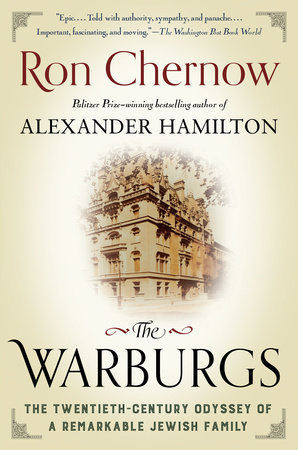I offer my great thanks to Max u for The Amazon Gift Card that allowed me to read this great book.
An Autodidactic Corner Selection.
Anyone interested in twentieth century Jewish history, international finance, German banking, the Holocaust, and much more narrated through the lives of the Warburg Family will love this book. The story begins in the mid 16th century when a Warburg was a “Court Jew” in Hamburg to the development of a fortune and a legend to rival the Rothchilds. One Warburg founded the Federal reserve bank in America while helping other Jews out of Nazi Germany, another used his vast fortune to build great library, preferring Reading to banking. Chernow has a wonderful way of making us know each of the many family members. We know much more about them than we do about most subjects of biographies.
The book really gets going toward the end of the 19th century. The Warburgs were very patriotic Germans. They helped the Germans Finance the Franco-Prussian War. Warburgs were in the German Army in World War One. After the war they did all they could to reduce the harsh demands of The Treaty of Versailles on Germany. Chernow does a wonderful job working in details about the period.
As we enter the 1930s Chernow lets us feel the tension among German Jews. Most German Jews thought or hoped Hitler would “calm down”. Some knew this was an illusion, others thought their WW One Iron Crosses would save them. Through a combination of foresight, good luck and a willingness to pay huge penalties, almost all the Family got out before 1939. To the great credit of the Family, they took many employees and personal servants out with them. The Family entered the private banking business in New York City and became even more wealthy.
Warburgs tended to marry within the extended family. (Children of first cousins are only slightly more likely to have Birth defects than orher children though if the practice continues for several generations the risk grows.) An acceptable Warburgs mate had to be Jewish and very rich so the options were limited. As family members were born in New York City, some did marry rich Christians but they did find some family resistance. We see some of the marriages were long loving relationships, some of the men had mistresses. The Warburgs supported numerous Jewish causes, had complex feelings about Zionism, were great patrons of the arts in addition to bring powerful business men. Most were highly cultured and felt a banker should know more than just finance.
This is a delightful book. A book as richly informative as the family it teaches us about.
Ron Chernow’s bestselling books include The House of Morgan, winner of the National Book Award; The Warburgs, which won the George S. Eccles Prize; The Death of the Banker; Titan: The Life of John D. Rockefeller, nominated for the National Book Critics Circle Award; Washington: A Life, which received the Pulitzer Prize for Biography; and Alexander Hamilton, nominated for the National Book Critics Circle Award and adapted into the award-winning Broadway musical Hamilton.
Chernow has served as president of PEN, has received eight honorary doctoral degrees, and was awarded the 2015 National Humanities Medal. He lives in Brooklyn, New York. From ronchernow.com
Mel u





